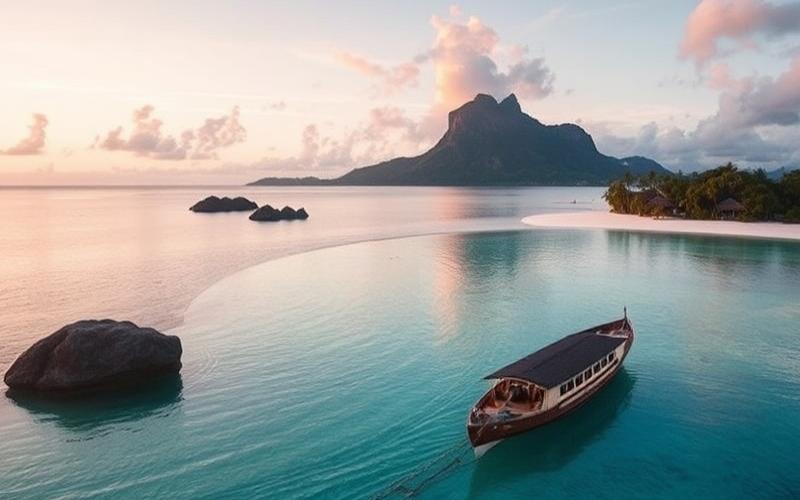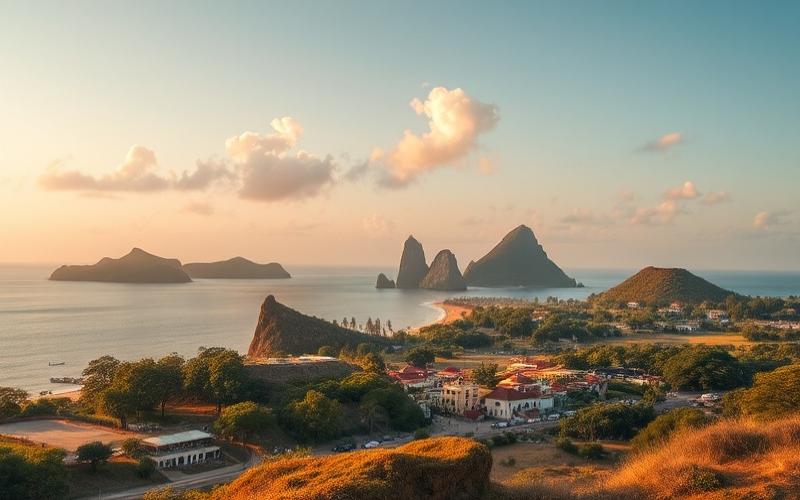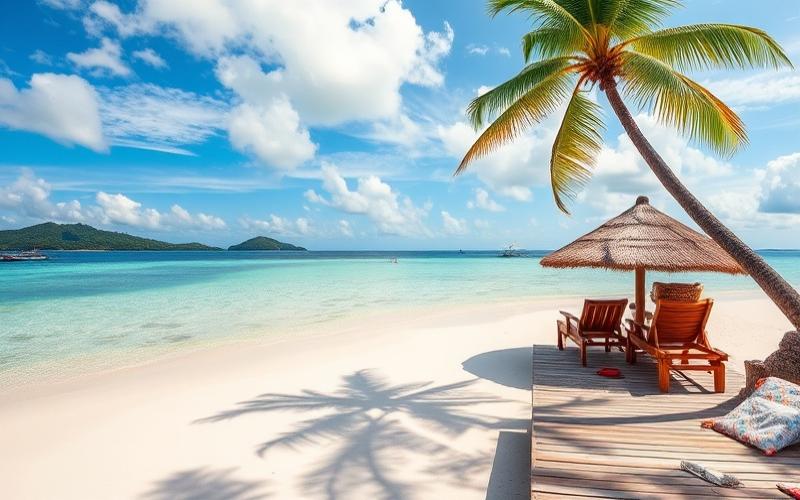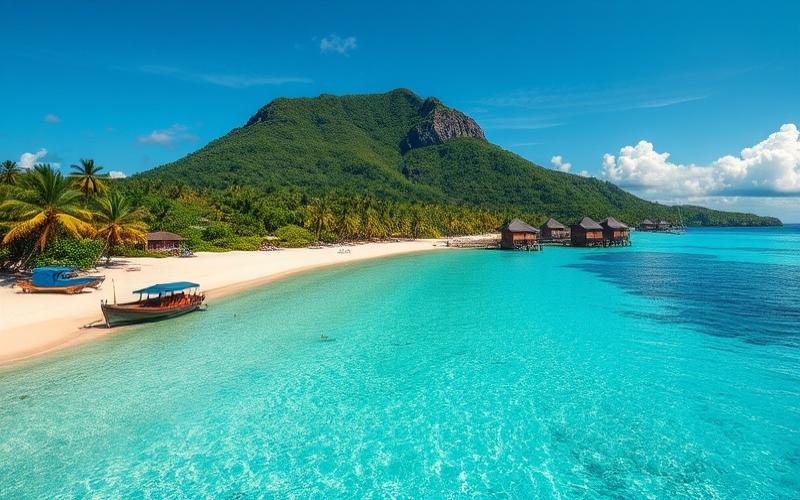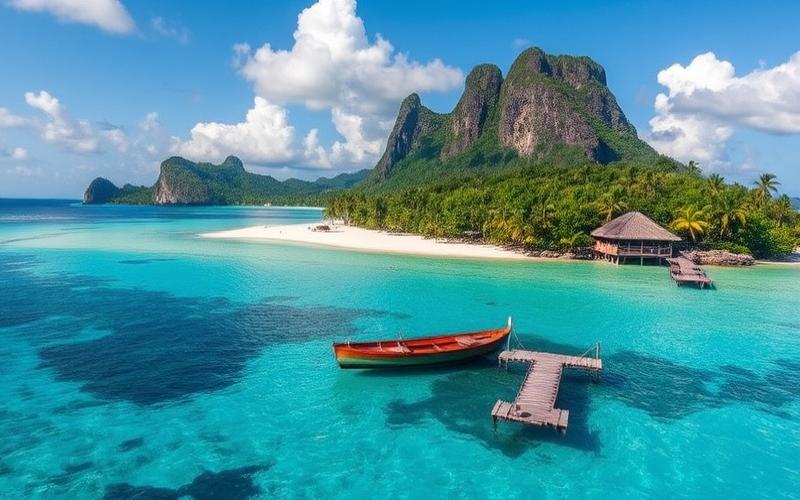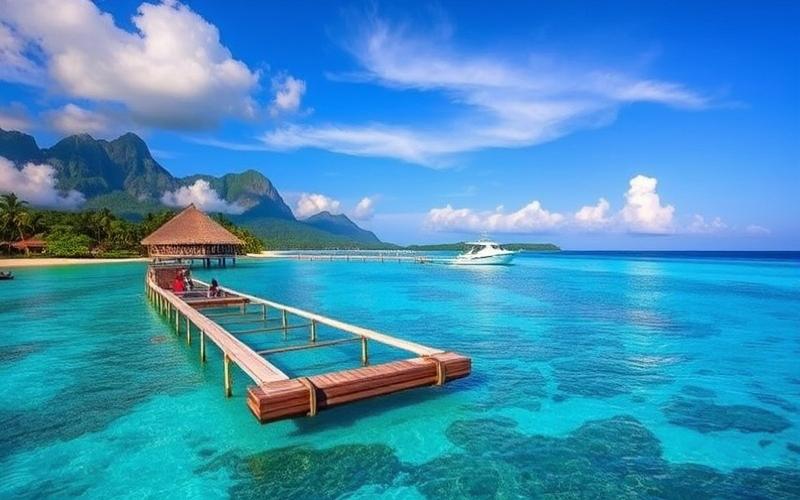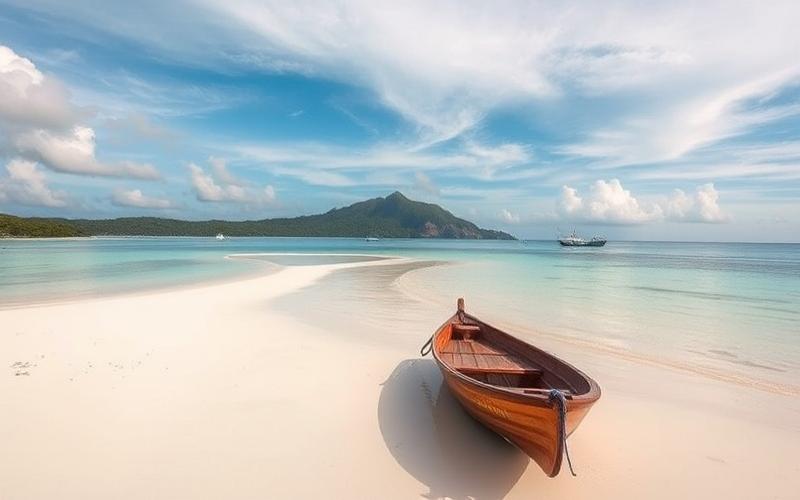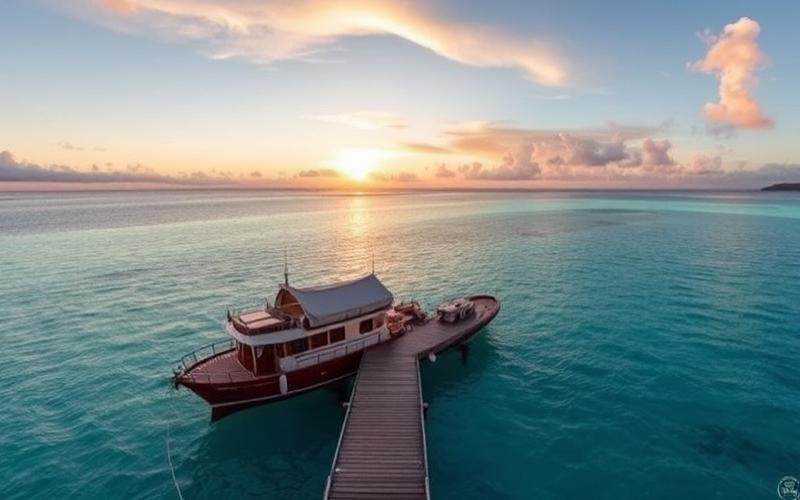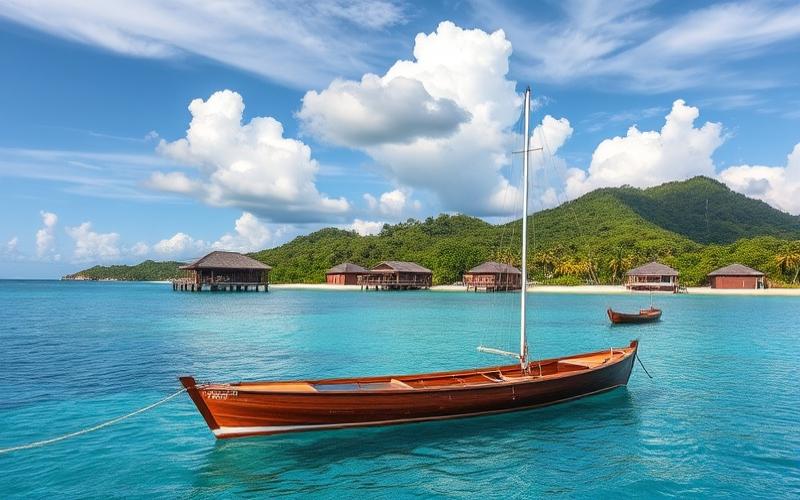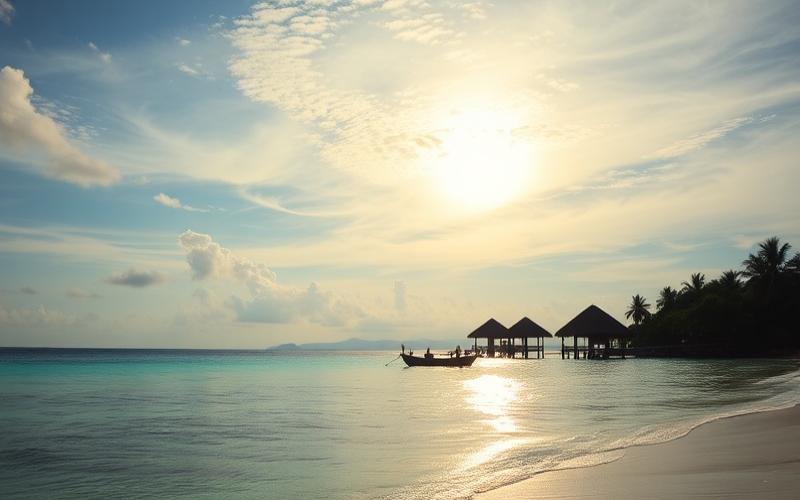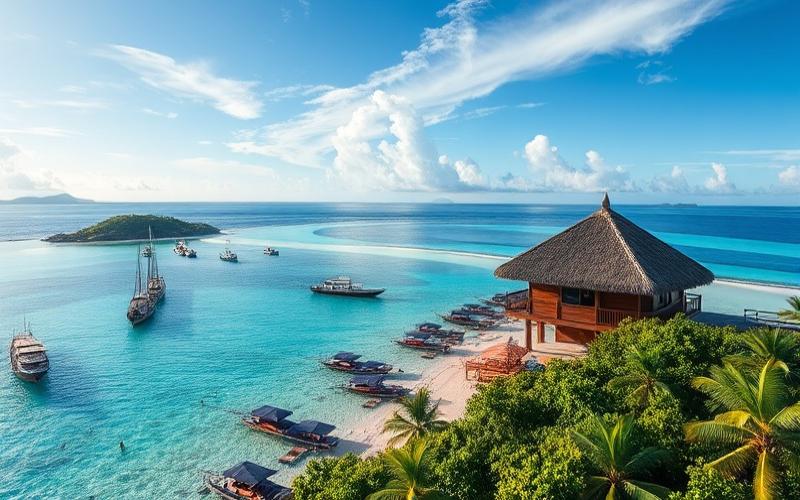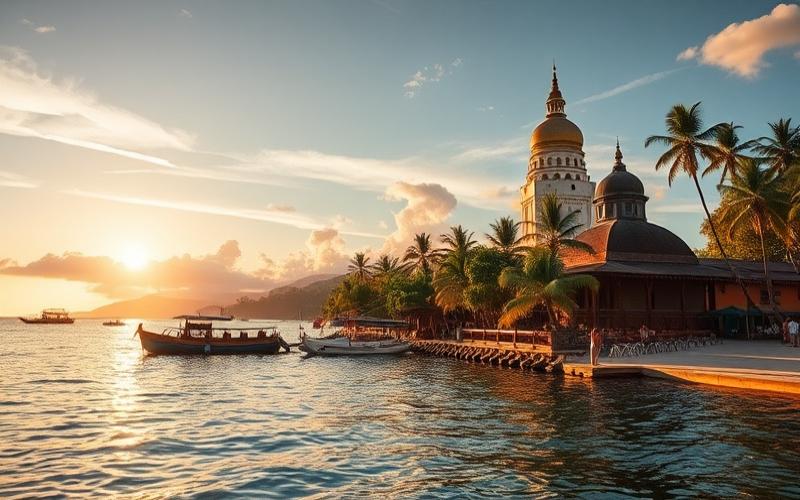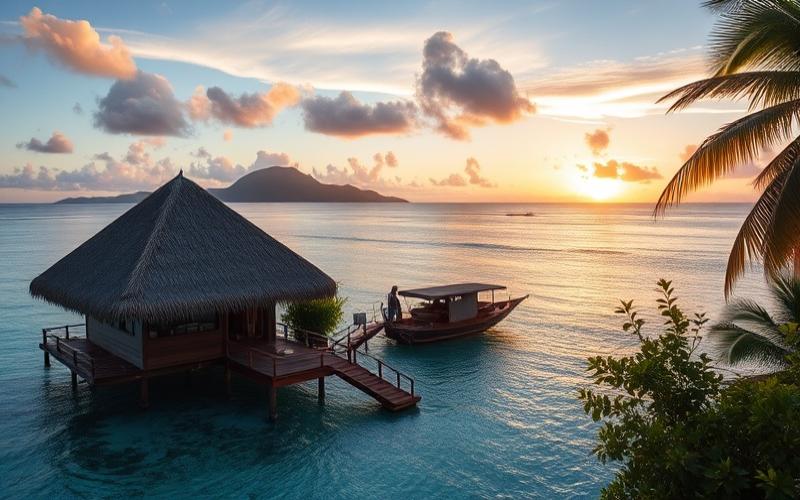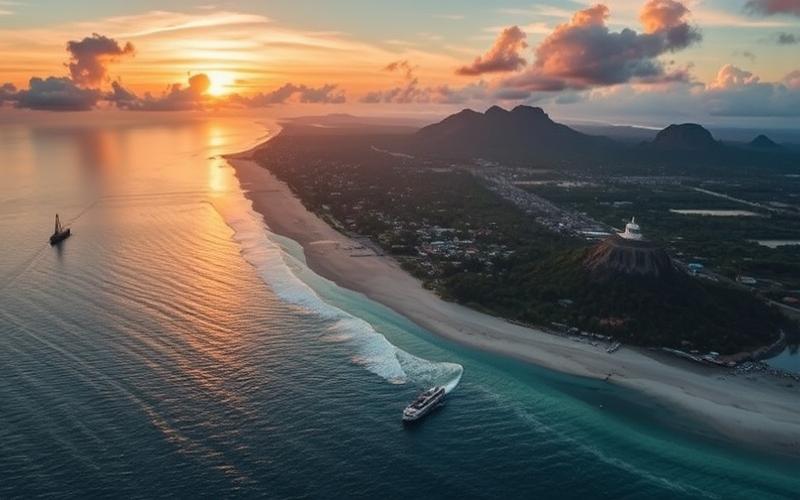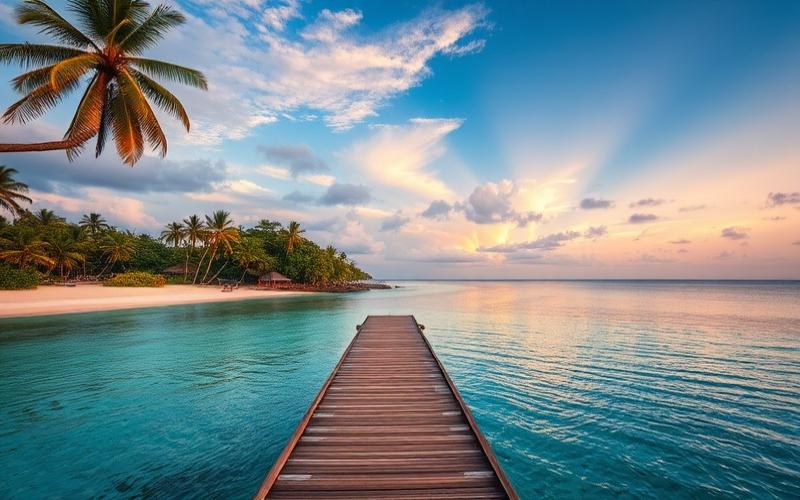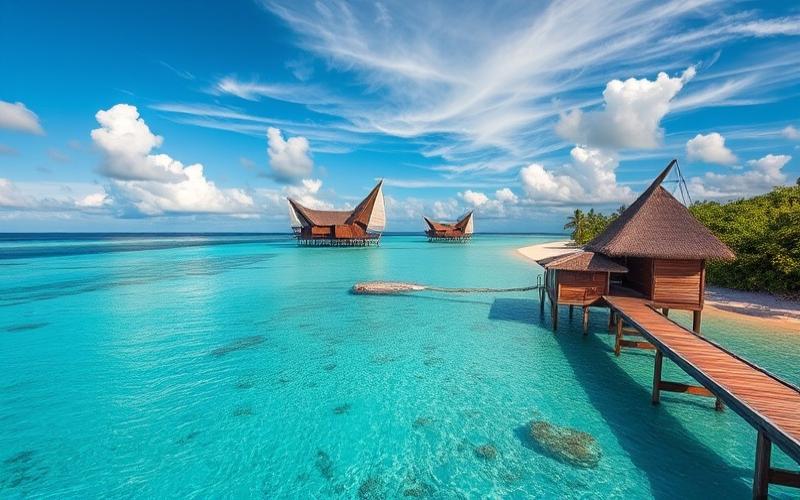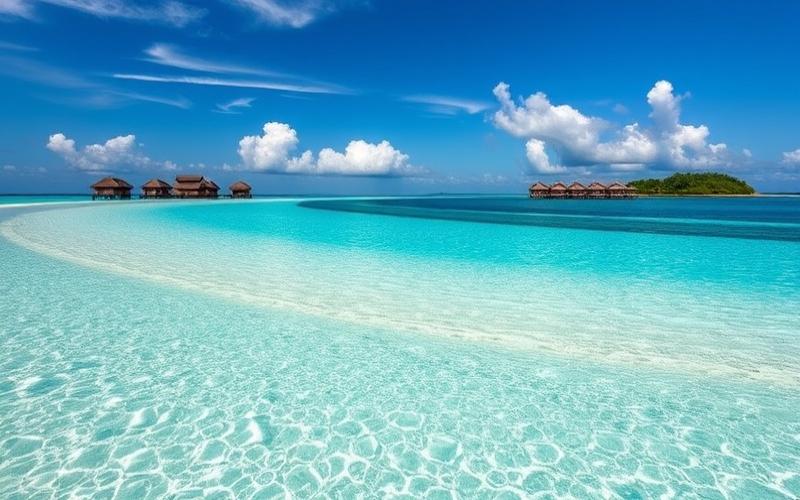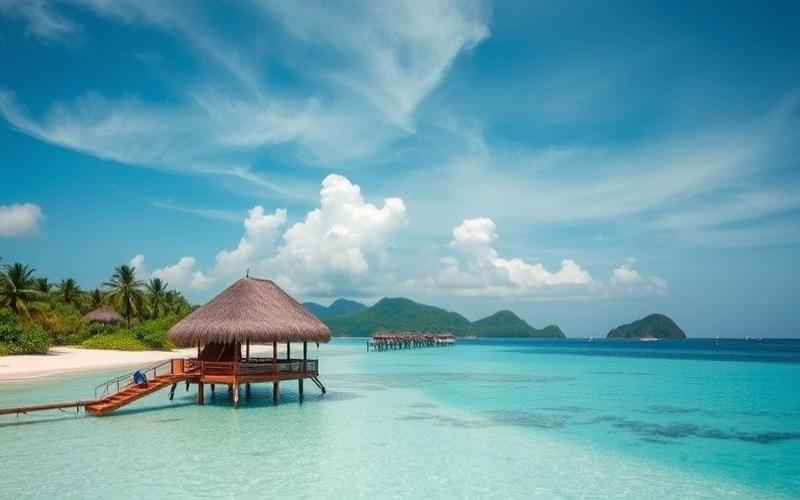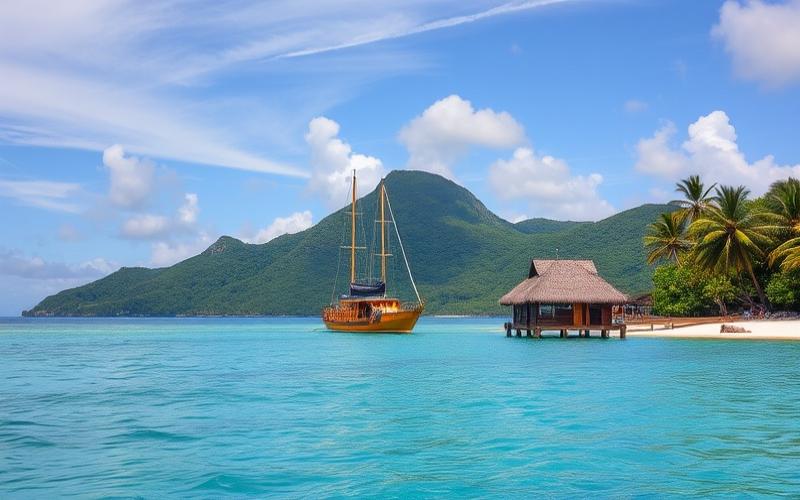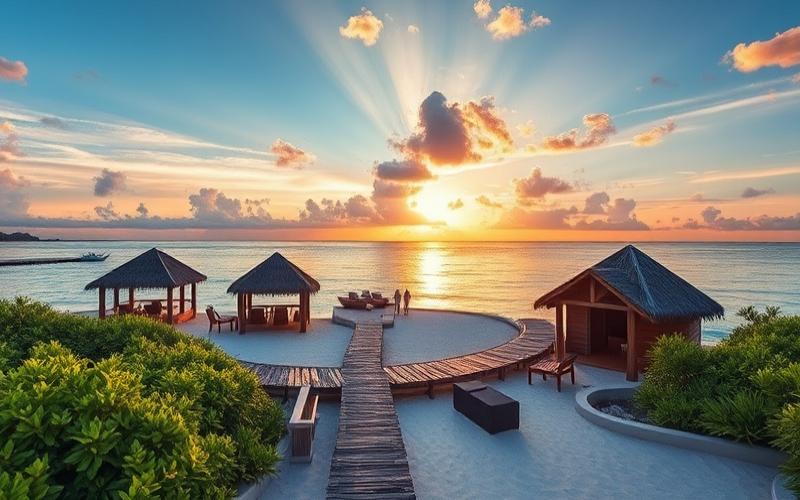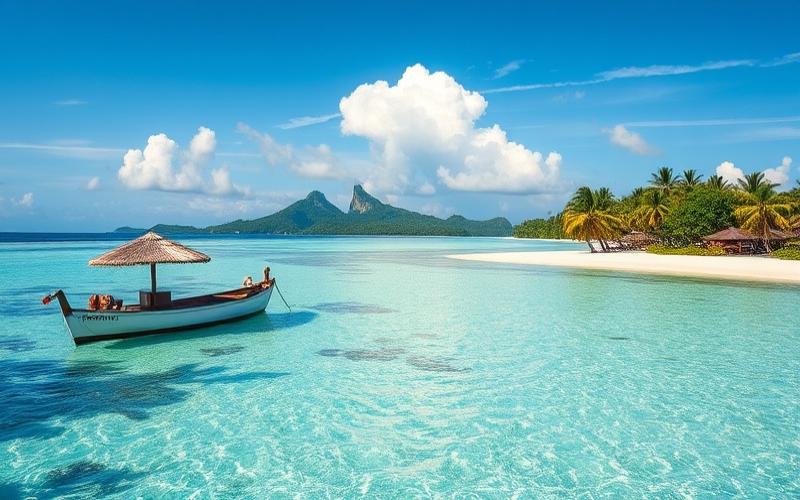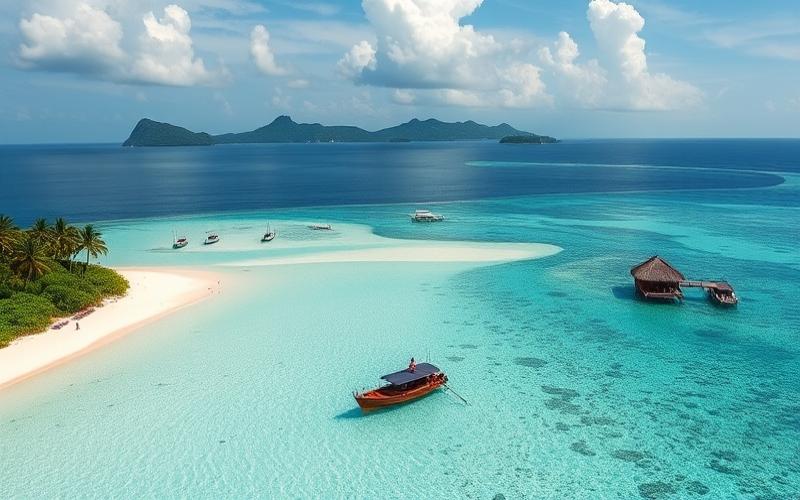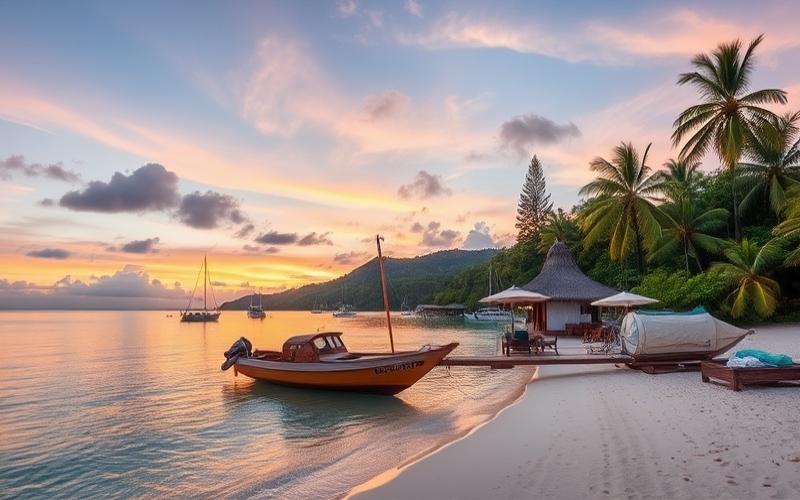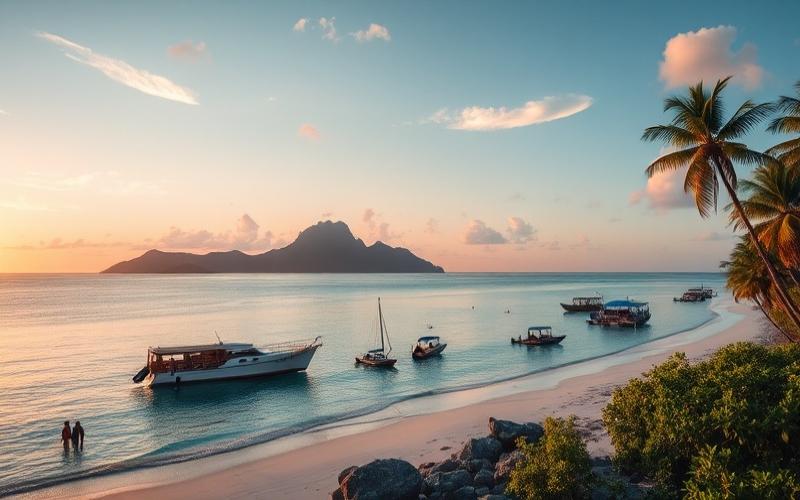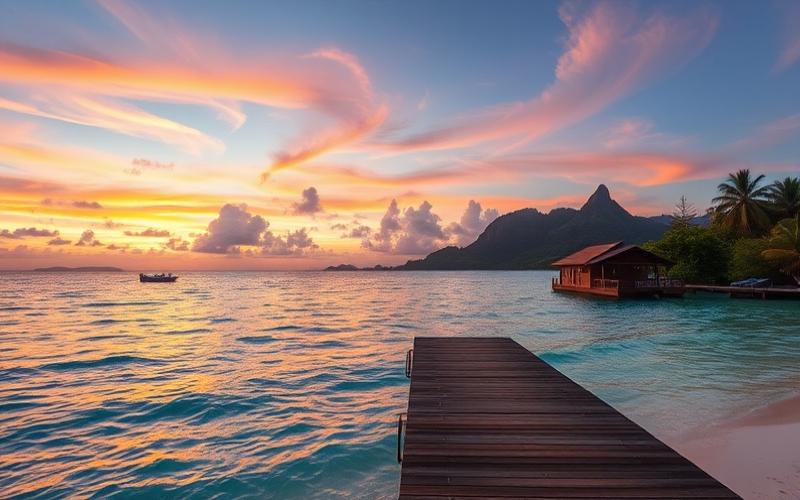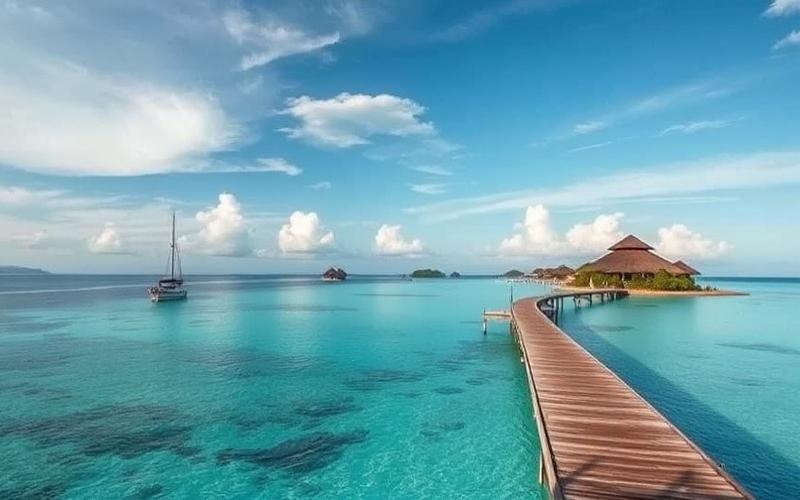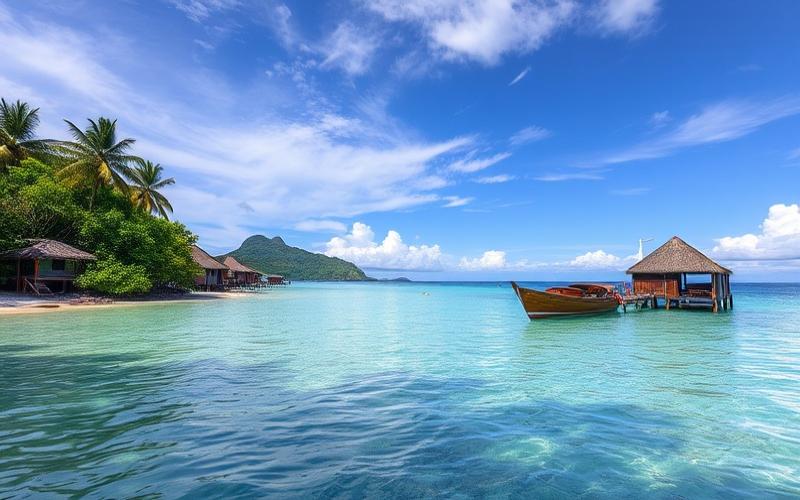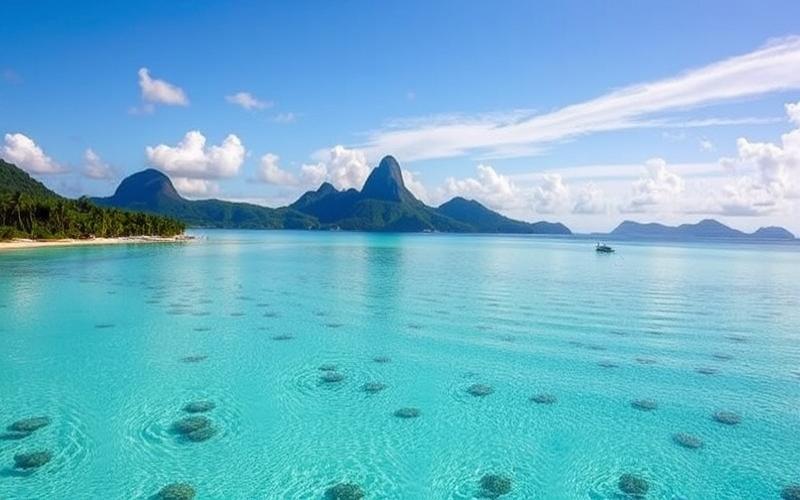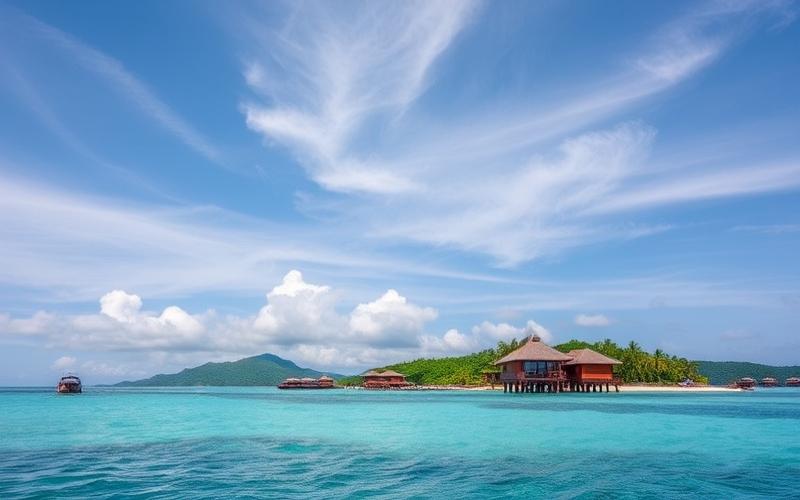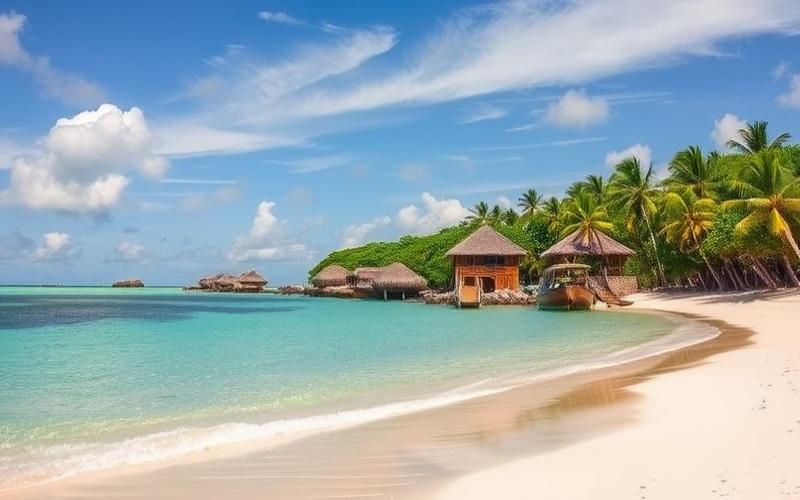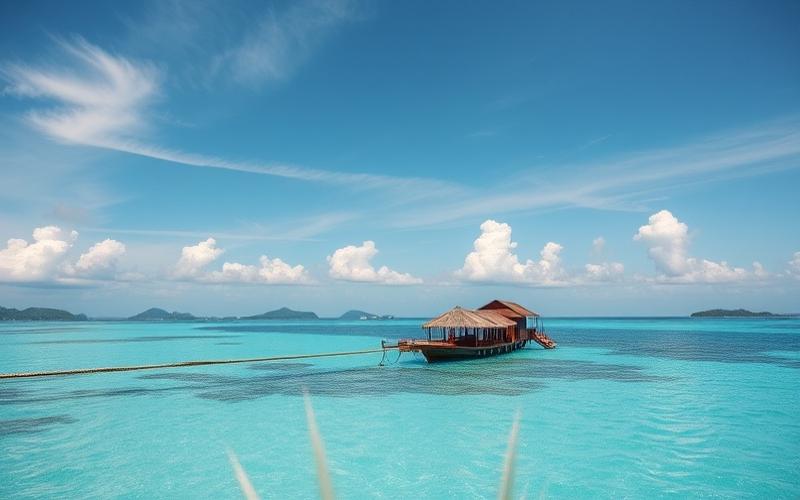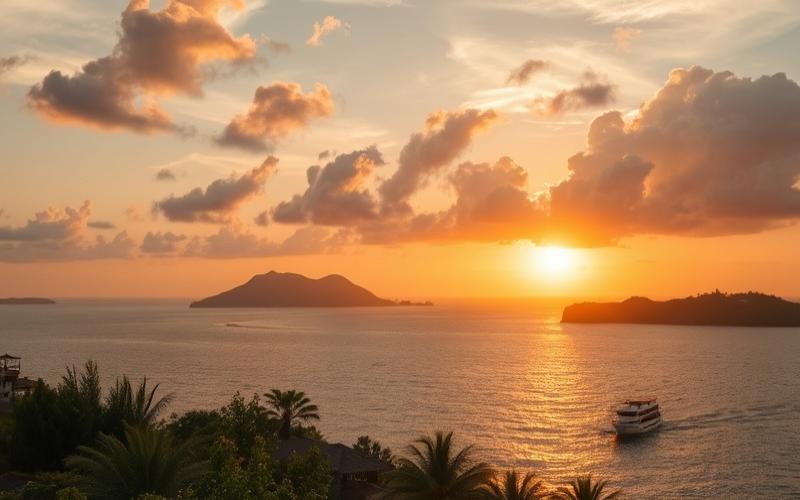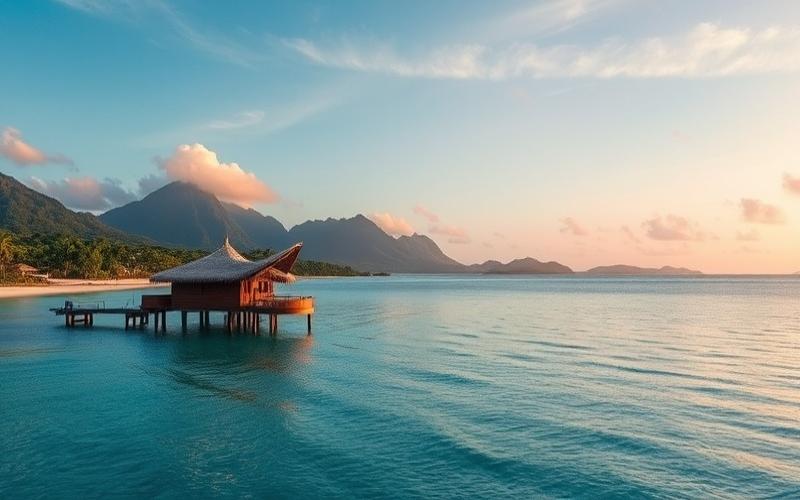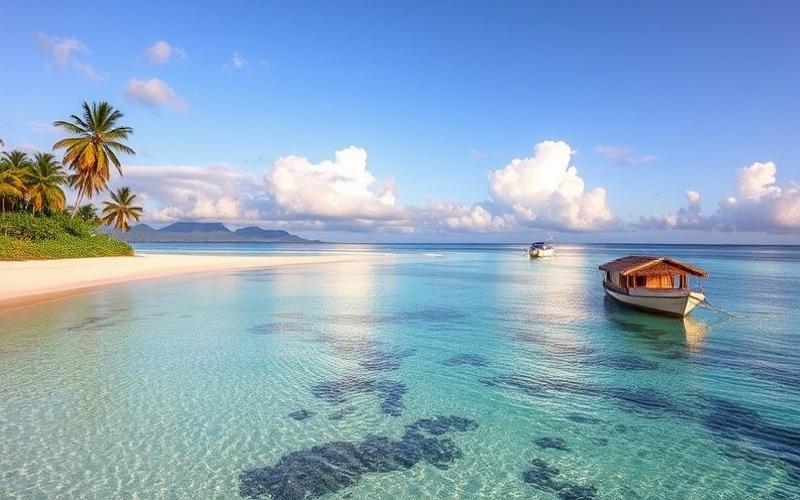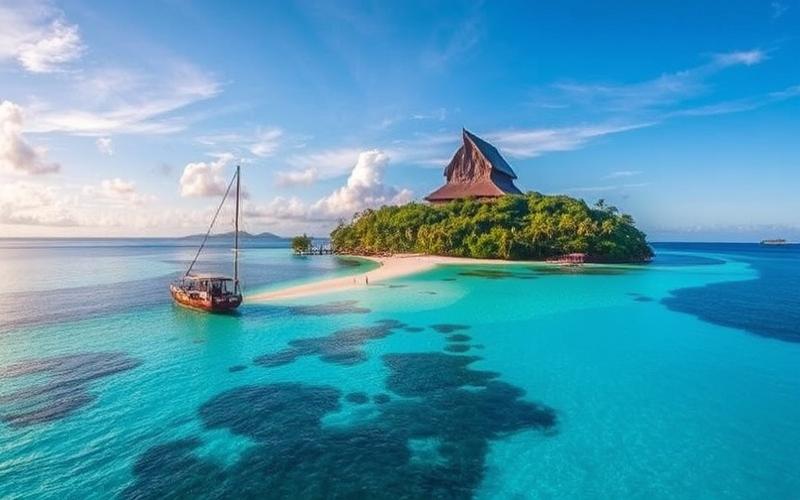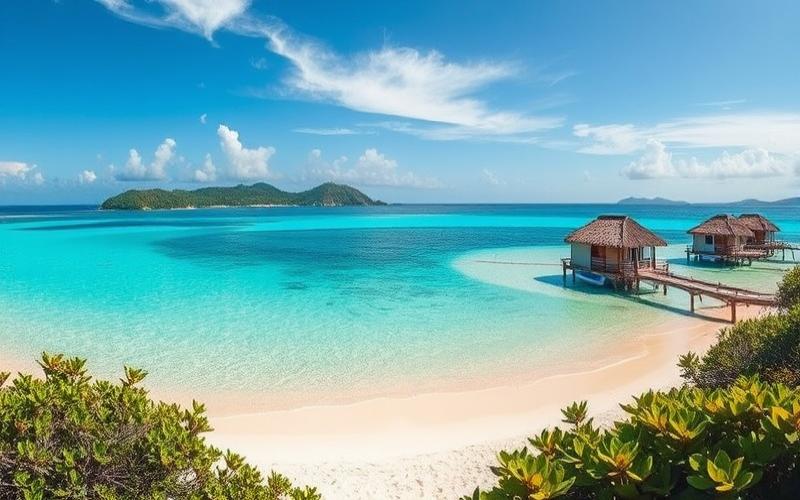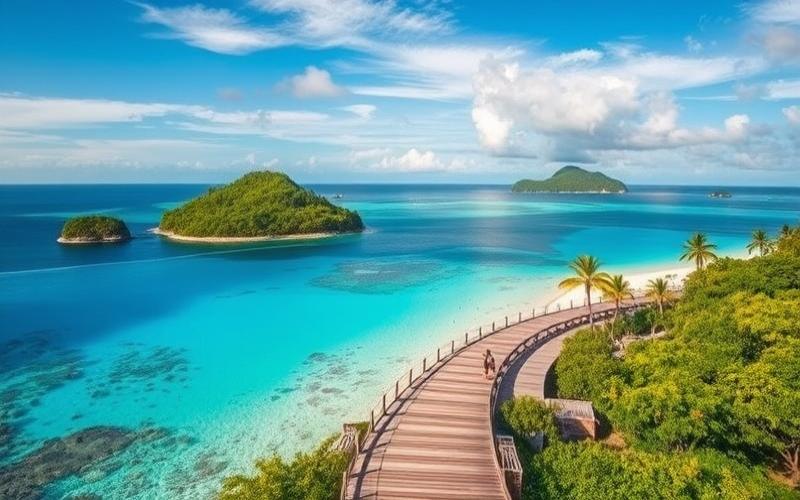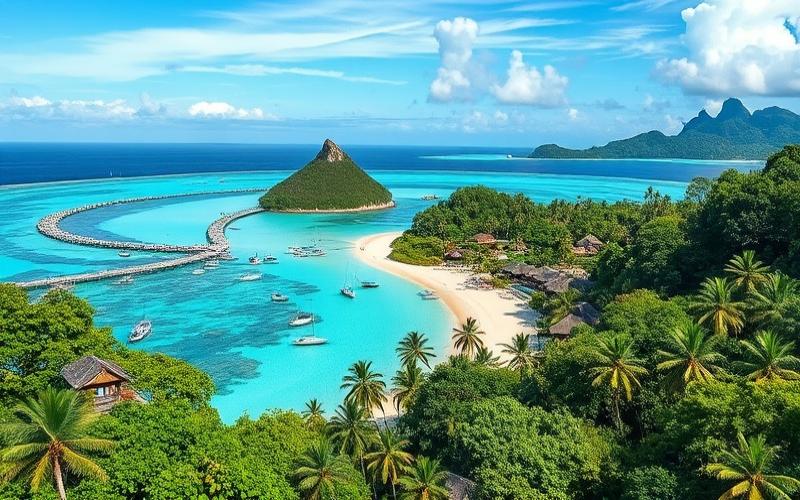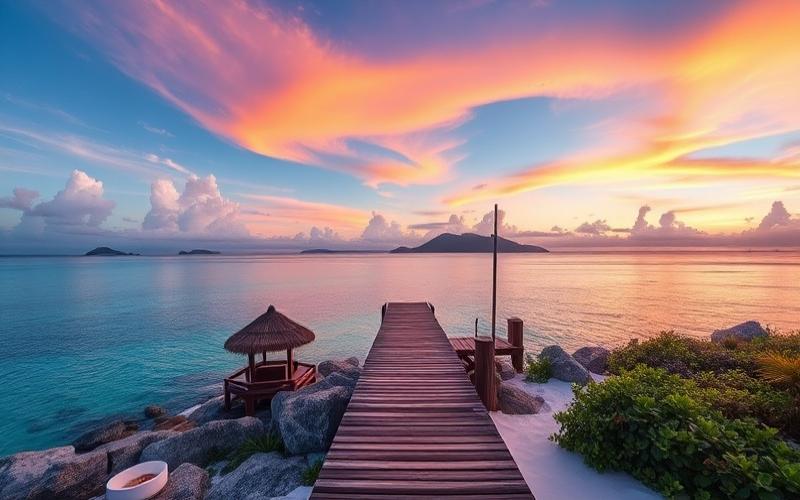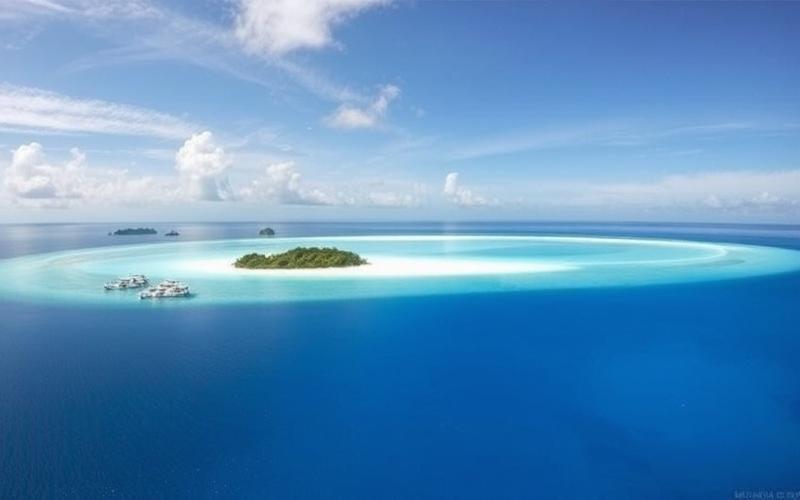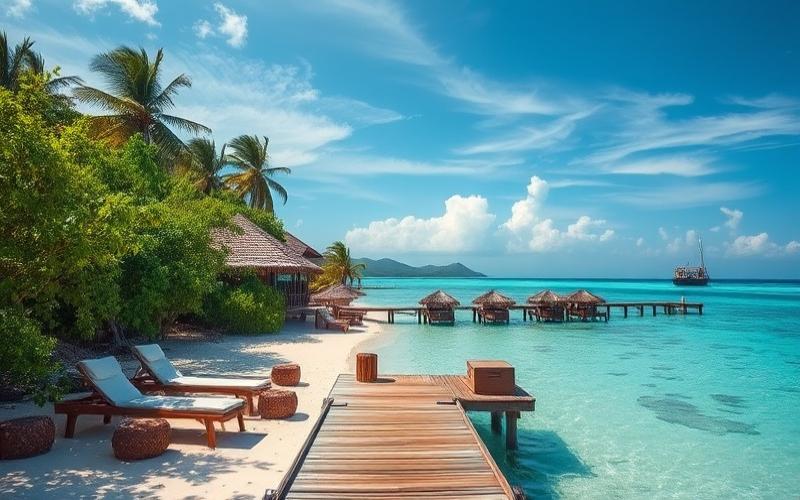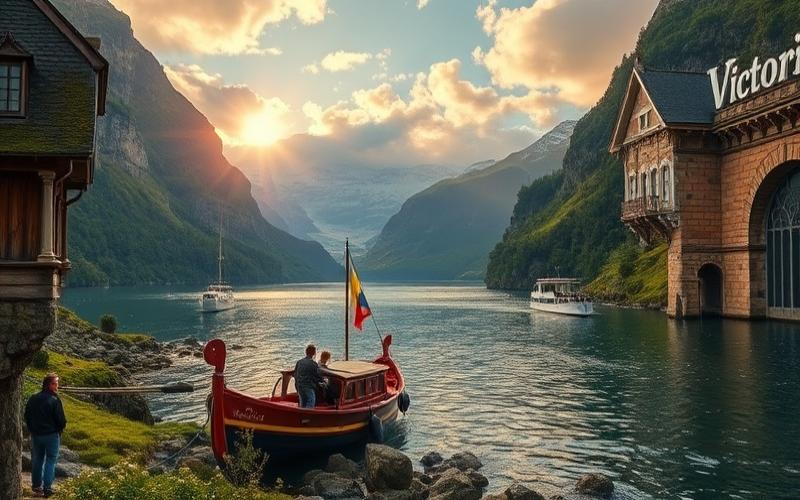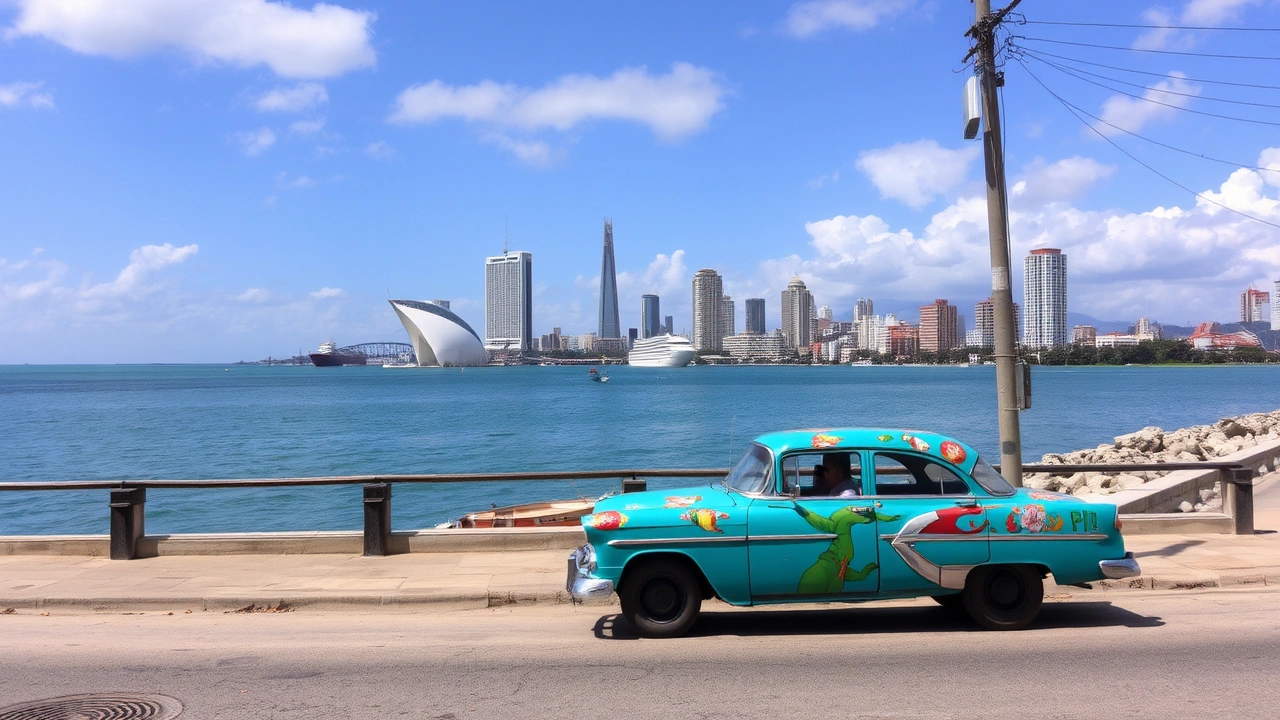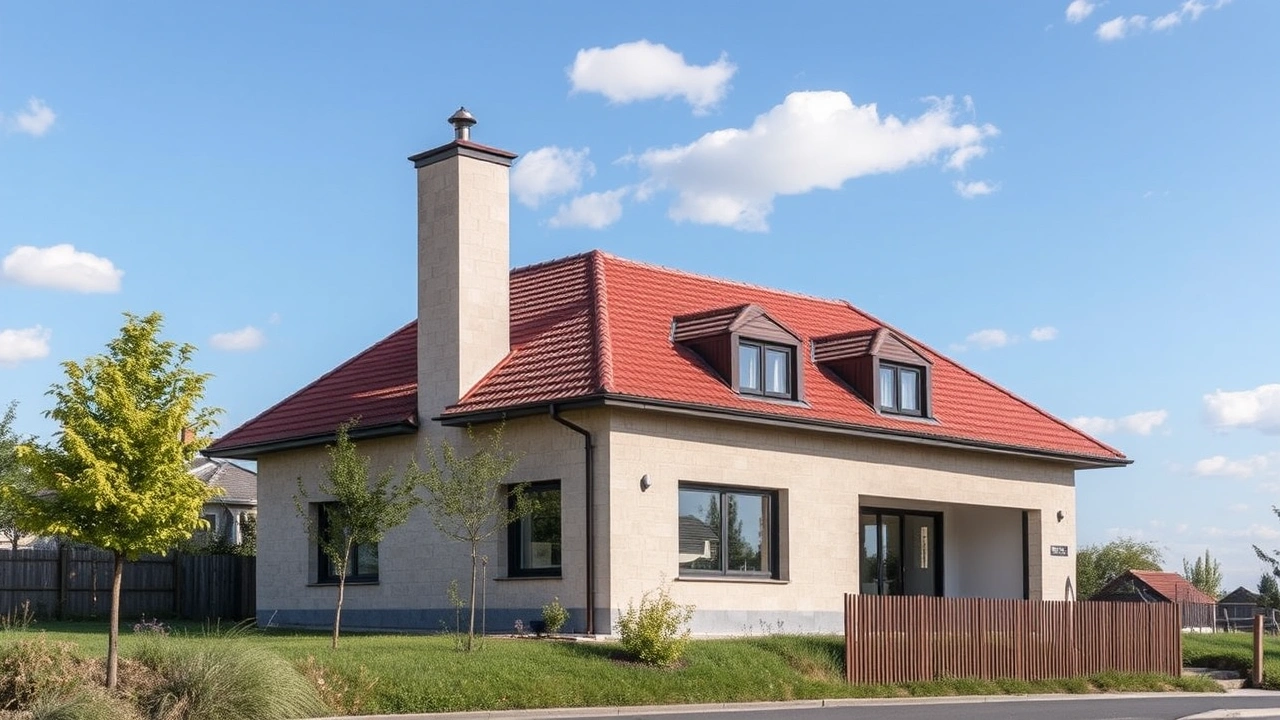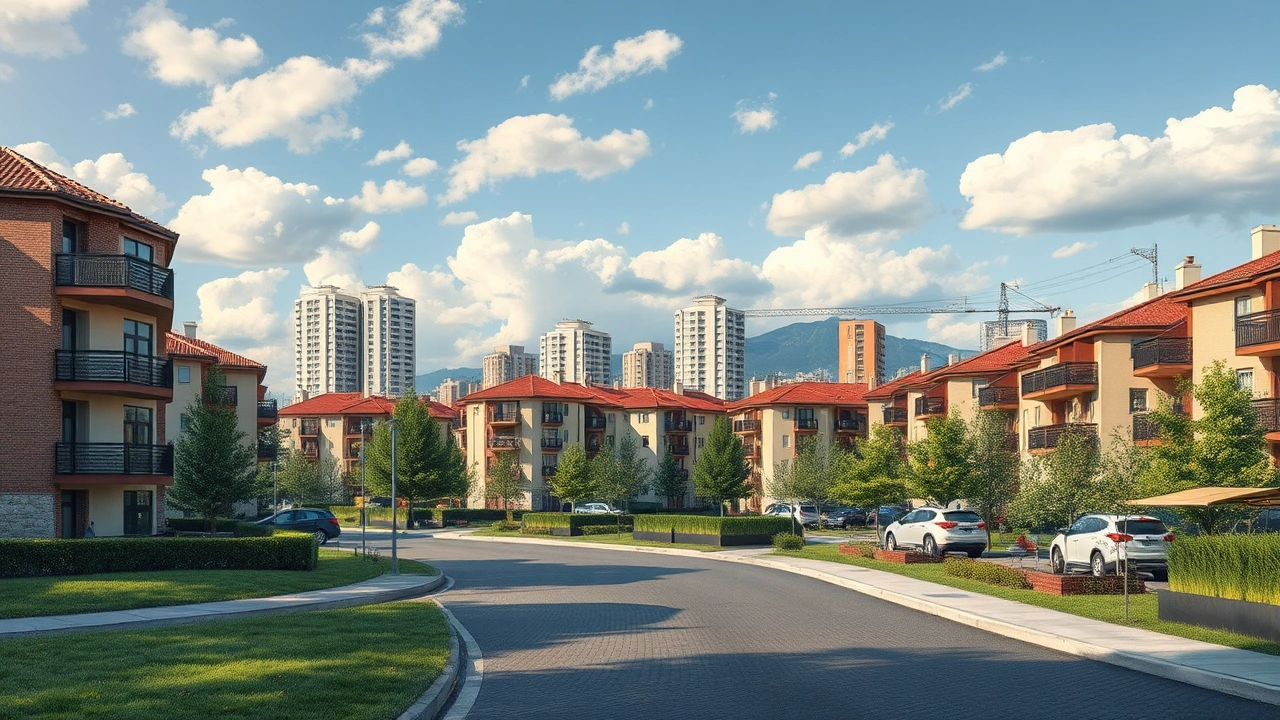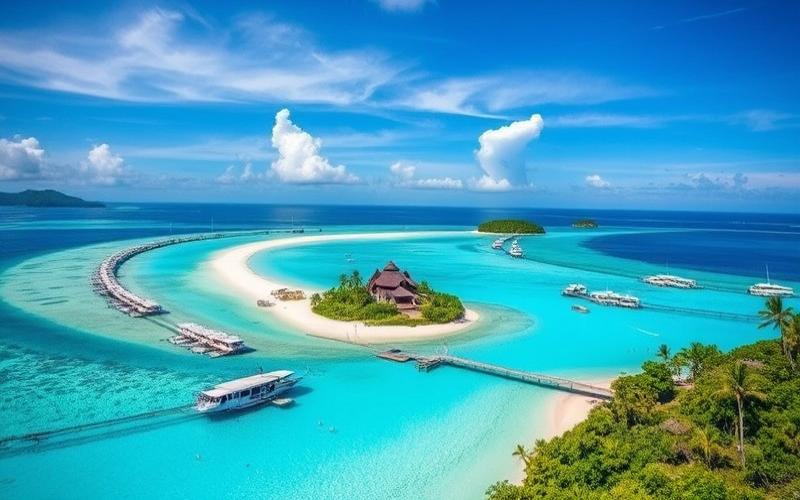
 Published on and written by Cyril Jarnias
Published on and written by Cyril Jarnias
Nestled in the heart of the Indian Ocean, the Seychelles offer an idyllic setting for real estate, but before investing in one of these dream properties, understanding the nuances of mandatory insurance is essential.
This comparison examines the different types of insurance required to protect your investment, from home insurance covering potential damage caused by tropical cyclones, to the essential liability insurance for property owners renting out their property.
By exploring the specifics of the local market, this article provides prospective buyers and investors with an overview of the best available options to ensure their peace of mind when acquiring property in this corner of paradise.
Home Insurance in Seychelles: Understanding Obligations
In Seychelles, there is no strict legal requirement mandating home insurance for property owners, whether they occupy their residence or not. However, it is highly recommended to protect against risks related to incidents (fire, water damage, natural disasters) because without coverage, the owner must bear all resulting financial losses alone.
For tenants, home insurance covering at minimum “rental risks” (damage caused to the rented property) is generally required by the lease agreement. This obligation aims to ensure compensation for the owner in case of an incident attributable to the tenant. However, this requirement does not systematically apply in the context of seasonal rentals or company-provided housing.
Regional Comparison:
| Country | Mandatory Insurance for Owners | Mandatory Insurance for Tenants |
|---|---|---|
| Seychelles | No | Yes (often contractually required) |
| Mauritius | No | Yes |
| Madagascar | No | Rarely |
| Réunion (France) | Yes (for condominiums) | Yes |
It is strongly advised to opt for multi-risk home insurance including liability coverage. This not only covers your property and its contents against a wide range of damages but also your liability towards others in case of a domestic accident affecting a third party.
The specific climatic conditions in Seychelles—occasional tropical cyclones, heavy rains, and high humidity—make comprehensive coverage essential, particularly including:
- Damage caused by storms and flooding
- Damage related to corrosion due to salt humidity
- Theft and acts of vandalism
The average annual premium cost varies depending on several factors:
- Profile: owner-occupier/non-occupier or tenant
- Declared value of the property and insured furnishings
- Geographical location: proximity to the coast or areas exposed to major weather hazards
- Type of dwelling: single-family house vs. apartment; living area
Indian Ocean regional average:
Basic annual premium = between €200 and €400
Comprehensive multi-risk premium = between €350 and €700
Determining Factors:
- The precise location on the island influences the cyclone risk.
- The materials used in construction affect resistance to weather conditions.
- The insured value directly determines the premium amount.
Useful Tips for Selecting Your Home Insurance Policy:
- Prioritize a multi-risk formula covering all types of frequent local natural events.
- Verify that the liability guarantee also includes unintentional damage caused to others.
- Carefully compare applicable deductibles by type of incident.
- Demand a clear contract specifying exclusions specific to the tropical climate (salt corrosion).
- Regularly adjust your coverage level during major acquisition/sale or significant modification of the insured property.
Good to Know:
In Seychelles, home insurance is not legally mandatory, but it is highly recommended, especially due to climate risks such as cyclones. Owners and tenants should consider comprehensive coverage including liability to protect against accidental damage to third parties. Unlike other countries in the region, Seychelles does not require specific coverages, but it is wise to include protections against natural disasters in your policy. Premium costs vary depending on geographical location and property value, with rates generally higher for properties located in high-risk areas. To choose the best policy, compare offers considering exclusions and deductibles, and look for insurers with good local reputations.
Owner Liability Insurance: Essential Coverage
Owner liability insurance constitutes a fundamental component of property protection in Seychelles. It aims to cover the owner in case of unintentional bodily injury or property damage caused to third parties in the context of owning or managing a property.
Main Characteristics:
- Coverage of expenses related to damages caused to others (injuries, property damage)
- Protection against lawsuits initiated by third parties following an accident occurring in or around the property
- Possible extension to cover certain specific events depending on the policy
Why is this Coverage Essential?
In Seychelles, as elsewhere, owning property exposes the holder to various unforeseen risks. A minor incident, such as a fall on a poorly maintained terrace or water damage reaching a neighbor’s apartment, can quickly engage the owner’s financial responsibility. Without liability insurance:
- The cost of compensating victims rests entirely on the owner
- Legal fees and compensation can reach high amounts
- A lack of coverage can compromise the owner’s personal financial stability
Risks Incurred Without Insurance:
- Injury to a visitor on the property (e.g., fall due to a broken step)
- Damage caused to a neighboring residence following an undetected water leak
- Fire starting from the insured property and affecting several neighboring homes
| Risk | Potential Consequence Without Insurance |
|---|---|
| Injury to a third party | Medical compensation + potential legal proceedings |
| Property damage to others | Full reimbursement of repairs |
| Extensive damage (fire) | Unlimited liability depending on severity |
Common Examples of Covered Incidents:
- Slip and serious injury during a property viewing
- Fall of objects from a balcony damaging a parked car below
- Accidental damage caused to a neighbor by unsupervised work
Typical Claims Process:
- Prompt declaration to the insurer with a detailed description of the incident.
- Possible provision of supporting documents (photos, witness statements).
- Expertise commissioned by the insurance to assess liability and quantify damages.
- Direct coverage or reimbursement to the affected beneficiary.
International Comparison:
In some European or North American countries, this guarantee is mandatory for all landlords; it is automatically integrated into any multi-risk home insurance policy. In Seychelles, even though certain obligations exist, particularly for auto insurance, it often falls to the individual property owner—especially expatriates—to anticipate these essential protections which are not systematically imposed.
Liability coverage therefore stands as a central pillar among the recommended property insurances in Seychelles: it usefully complements classic guarantees against fire or theft and ensures lasting legal and financial peace of mind for the holder against the inherent uncertainties of any local property ownership.
Good to Know:
In Seychelles, owner liability insurance is an indispensable coverage for any property owner, as it protects against claims for harm caused to others, whether bodily injury or property damage. This insurance is essential given the inherent risks of property ownership, including potential damage to neighbors or visitors, for example, due to falling tree branches or other unforeseen accidents related to the property. Unlike some countries where this coverage is optional, in Seychelles, it is considered a wisely recommended precaution to address unforeseen events. The typical claims process begins with reporting the incident to the insurer, followed by an assessment of the damages involved. In Seychelles, where the insurance market is constantly developing, owner liability insurance integrates into a broader network of property insurances, thus offering complementary security to contracts covering the dwelling itself.
Key Takeaway
Voluntary but essential subscription to liability insurance allows the Seychellois owner—both resident and foreign investor—to effectively protect their assets against any risk arising from relations with neighbors, visitors, and occasional tenants.
Comparison of Mandatory Insurances: Which Protections to Choose?
| Insurance Type | Main Coverage | Insured Amounts | Estimated Pricing | Mandatory or Recommended |
|---|---|---|---|---|
| Home Insurance | Damage to the dwelling (fire, water damage, theft…), Civil Liability | According to property value and options | Variable depending on area/risks, generally low relative to local real estate prices | Mandatory for tenants and owner-occupiers |
| Non-Occupier Owner Insurance (PNO) | Damage to vacant or rented structure, rental risks | Adjustable according to declared value | Slightly higher than standard home insurance; depends on rental type | Recommended for landlord owners |
Particularities of the Insurance Market in Seychelles:
- Contracts are often influenced by the tropical climate (cyclones, high humidity), with particular attention paid to natural risks.
- The market is restricted: limited offering from local or international insurers operating on site.
- Subscription can be impacted by the tourist destination: increased risk in coastal areas.
Practical Advice by Property Type:
- Primary Residence: prioritize a multi-risk home insurance contract including liability and extensive coverage against frequent weather events.
- Property intended for seasonal rental: opt for PNO insurance covering damage caused by third parties and vacancy periods between rentals.
- Seaside Villa: verify that storm/flood coverage is included without major exclusions.
Concrete Examples Where Certain Protections Make a Difference:
In case of a cyclone damaging the roof of a villa occupied as a primary residence, only a comprehensive home insurance policy will cover immediate repairs.
If water damage occurs in an apartment rented annually while it is unoccupied for several weeks, only PNO insurance allows the non-resident owner to obtain prompt repairs without involving the tenant.
When a fire breaks out in a building comprising several units, some vacant and others inhabited by seasonal foreign tenants, each party must be able to justify their own coverage adapted to their actual use.
Key Points for Choosing Your Protection Wisely:
- Always compare the offered compensation limits with the actual value of the Seychellois property (often high).
- Carefully examine exclusions related to natural phenomena specific to Seychelles.
- Anticipate future needs if usage changes (transition from primary residence → rental).
A rigorous verification of local general conditions as well as guidance from a professional familiar with Seychellois law remain essential before any signature
Good to Know:
In Seychelles, it is crucial to choose property insurances considering local specificities, particularly for home insurance and non-occupier owner insurance. Home insurance generally covers damage related to fires, floods, and theft, while non-occupier owner insurance is essential for those renting out their property, offering guarantees against unpaid rent and tenant damages. Given the specific environmental risks in Seychelles, such as cyclones, it is recommended to ensure coverage includes these eventualities. Rates can vary considerably among insurers, so it is suggested to carefully compare insured amounts and deductibles, especially for properties located in high-risk areas. For example, for a property rented on a remote island, including protection against loss of rental income may prove wise in case of a natural disaster preventing rental. Advice also includes evaluating the property’s use: a primary residence will require different protections than a rental investment or a secondary residence, where the focus should be on covering potential damages and the owners’ peace of mind.
Disclaimer: The information provided on this website is for informational purposes only and does not constitute financial, legal, or professional advice. We encourage you to consult qualified experts before making any investment, real estate, or expatriation decisions. Although we strive to maintain up-to-date and accurate information, we do not guarantee the completeness, accuracy, or timeliness of the proposed content. As investment and expatriation involve risks, we disclaim any liability for potential losses or damages arising from the use of this site. Your use of this site confirms your acceptance of these terms and your understanding of the associated risks.

